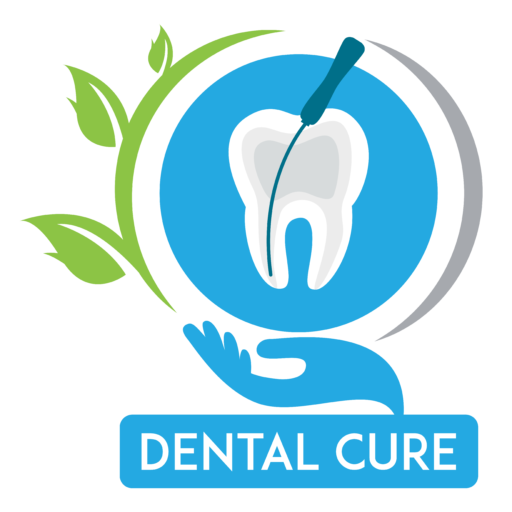ROLE OF DIET ON CHILD’S DENTAL HEALTH
Dental health in children is very crucial to general well-being. Brushing and flossing are essential, but diet ensures healthy teeth and gums.
- The Connection Between Diet and Dental Health: The foods and beverages children consume directly influence their oral health. Those sugary and acidic foods can lead to tooth decay and gum diseases. On the other hand, nutritious foods provide teeth and gums with support.
- Critical Nutrients for Dental Health: Calcium, phosphorus, vitamin D, and vitamin C are the primary nutrients to keep the teeth and gums healthy. These nutrients contribute to enamel strength, bone density, and integrity of gum tissues.
The Consequence of Sugary Foods and Drinks
- Sugar and Tooth Decay: The bacteria are called the sugar foods and drinks because they are the leading cause of tooth decay.
- Hidden Sugars: Many processed foods like snacks, cereals and sauces have added sugars that can aggravate dental health.
- Frequency Matters: Both the frequency of sugar consumption and the amount of sugar are as important. Consumption of sweets in small quantities throughout the day or sipping on sweet beverages leads to constant acid attacks on tooth surfaces, which results in decay.
Building Blocks of Teeth
- Calcium-Rich Foods: Dairy products such as milk, cheese, and yoghurt are rich in calcium indispensable for healthy teeth and bones.
- Phosphorus-Packed Foods: The consumption of phosphorous-abundant foods such as lean meat, fish, nuts and eggs helps remineralise enamel and maintain tooth structure.
- Vitamin D Sources: Basking in sunlight, dairy products fortified with vitamin D and fatty fish such as salmon and tuna are excellent vitamin D sources, essential for calcium absorption and dental health.
Superfoods for Smiles
- Crunchy Fruits and Vegetables: Apples, carrots, celery, and cucumbers are natural dental cleansers. They clean the teeth surface by increasing saliva and scrubbing the teeth.
- Leafy Greens: We have spinach and kale, which are all leafy greens that are sources of vitamins and minerals that help maintain the overall health of the teeth as well as reduce inflammation.
- Antioxidant-Rich Berries: Besides preventing gum disease, fruits such as blueberries, strawberries and raspberries play the role of antioxidants, which give them the ability to advance the healing process of the tissues.
Good oral health depends on hydration
- Water as the Best Beverage: Distilled water is indispensable for synthesising saliva, a lubricating microfluid that flushes out food leftovers and neutralises acids. Therefore, it maintains normal oral pH.
- Avoiding Sugary and Acidic Drinks: Along with restricting sugary sodas, sports drinks also trigger acerbic fruit juices repeatedly, limiting the risk of enamel erosion and tooth decay.
Healthy Snacking Habits
- Smart Snack Choices: Skip the sugary snacks for cheese, yoghurt, nuts and fresh fruits. Brush at regular intervals to avoid getting cavities or tooth decay.
- Limiting Sticky and Sweet Treats: Gummy and stick chews, as well as candies and extracted fruit, stick to the tooth surface, thus making conditions for caries favorable. This is important because you do not want them to become used to it, as it will be difficult to brush them off afterward.
Dental health recommendations during meals
- Balanced Plate Approach: Stress a balanced diet which meets the recommendations for all the different food groups to help to have the proper nutrition for dental health.
- Timing Matters: The acidic substances in beverages and snacks between meals are the most common causes of acid attacks on teeth. Therefore, reducing such types of intake between meals is recommended. Follow the prescribed meal times and snacks diet.
Recommendations for Parents and Caregivers
- Lead by Example: Be a role model of healthy eating habits by showing good manners and oral hygiene practices.
- Establish Routine Dental Visits: Have your child visit a dentist regularly for check-ups and cleanings so that any problems may be detected and treated on time.
FAQs Concerning Diet and Oral Health
Q: Is it okay for children to drink fruit juices?
A: Although fruit juices contain some nutrients, they should be restricted because of the high sugar and acidity content. Water and whole fruits are better choices.
Q: How can I persuade my child to eat more veggies?
A: Present a large selection of vegetables in various forms (raw, cooked, mixed) and let children participate in meal preparation and cooking for an enhanced interest in vegetables.
Q: Are sugar substitutes safe for dental health?
A: Sugar substitutes such as xylitol and erythritol are tooth-friendly alternatives to sugar and may reduce the risk of tooth decay if used in moderation.
Conclusion
Incorporating a balanced diet with nutrient-rich foods is the key to dental health promotion in children. By focusing on whole foods, limiting sugary sweets, and practising good oral hygiene, parents and caregivers can help kids to have strong teeth and gums for a lifetime of healthy smiles.
